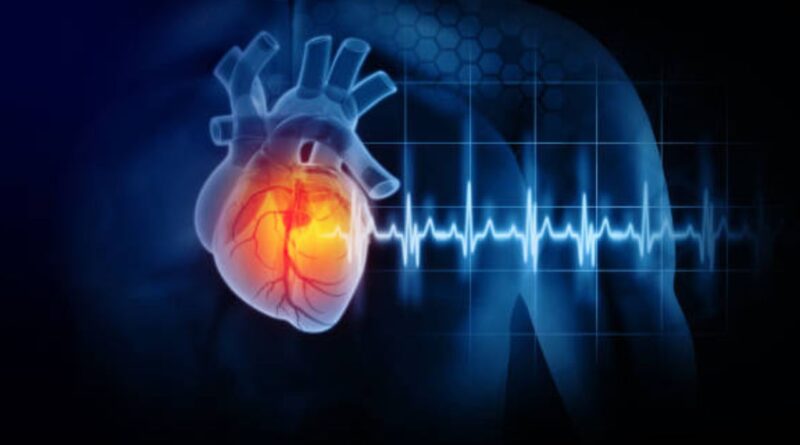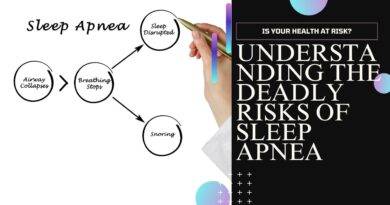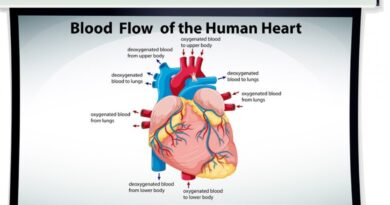Strong Hearts Calories 2024
Introduction
Strong hearts calories are the necessary requirement for the maintenance of the heart’s health and the overall health of the body. Strong Hearts Calories are nutritionally balanced to provide the best nutrition. With each serving, you get a delicious and healthy choice for good health. Receiving the proper consumption and kind of calories which are energy sources for the heart, a muscle that needs a continuous supply of energy to work well. Proper nutrition, together with the proper intake of macronutrients and micronutrients, enabling heart health by good blood flow, and reducing inflammation, and forestall illnesses that are ongoing like hypertension and diabetes. The comprehension of calories in heart health can lead the people to smarter dietary choices improving their quality of life and longevity.
What Are Strong Hearts Calories?
Strong Hearts Calories are calories that facilitate a heart-healthy way of life. Normally, calories are obtained from nutritionally dense foods that tend to promote heart health. You select calories from nutrients in vegetables, lean meats, and whole grains. You want to ensure those nutrients decrease your risk for heart disease while also making sure you keep your blood sugar levels in balance.
Key Points
Strong Hearts calories are from nutritionally dense foods.
They help monitor cholesterol and blood pressure.
These calories help maintain energy and body weight.
How to Add Strong Hearts Calories in Your Diet
Adding Strong Hearts calories to your diet is about choosing nutrient-rich foods rather than calorie-dense ones. Choose vegetables, fruits, whole grains, and lean proteins that will support heart function and boost energy without adding excess calories. Small changes add up over time.
Key Points:
Eat foods with low calories and high nutrients. Steer clear of all processed foods, as they have empty calories. Gradual changes lead to sustainable heart health.
Importance of Balanced Caloric Intake
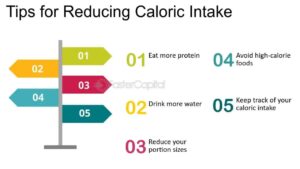
Strong hearts calories Balanced caloric intake is of utmost significance in the realization of cardiovascular health. Balanced caloric intake definitely has a role in overall health, which cannot be gainsaid. Intake of too many calories may lead to weight gain and obesity which are known to be the risk factors for heart diseases. Conversely, if a person takes a few calories it will result in malnutrition which in turn will reduce the heart strength. Considering the diet which contains not only the required calories but also the right kind of energy from nutrient-dense foods guarantees that the heart gets enough but there is no overmuch. The pattern of the ideal load of the body, ideal metabolic function, and the decrease in conditions such as high blood pressure and high cholesterol that are injurious to the heart health are borne as a result of this balance.
Role of Macronutrient
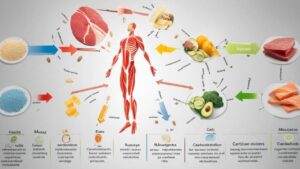
Macronutrients i.e. carbohydrates, proteins, and fats, are important for heart health Carbohydrate give the heart a quick energy source, while proteins give the muscles including the heart muscle An upkeep and backing system. One needs to understand the role of macronutrient balance in health.
strong hearts calories Great fats, explicitly, unsaturated fats found in food varieties like avocados, nuts, and olive oil, assist in decreasing the bad cholesterol levels and inflammation, both of which are the risk factors for heart disease. The maintenance of these macronutrients in the diet makes the heart receive a patient flow of energy and necessary nutrient respectively, thus promoting strong hearts and calories operation.
Impact of Fiber on Heart Health
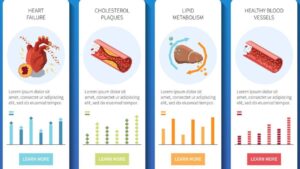
Juice, mainly from fruits and vegetables, whole grains, today’s legumes, is essential for heart health. Fiber is material that is used to remove bacteria, and fungi from the body. Fiber reduces cholesterol levels by binding to cholesterol particles and then by excreting them from the body. Moreover, fibers involving fruits and vegetables also help blood sugar levels to be controlled by their fiber and the consumption of these foods with insulin resistance and diabetes as risk factors for heart disease to be prevented. Also, satiety was very likely to be high in subjects with a high-fiber diet, which, in turn, helped in eventually controlling calorie intake and, thus, in weight management. Fiber is often chucked by the gut biome and ends up being passed with your next bowel movement. strong hearts calories For those who are on anticoagulants or medication for high blood pressure the best liquid is water, but it’s also worth considering that some medicines require milk, cereals or citrus products to be ingested. That is, one can use fiber, which is contained in the diet, to keep their heart health function positive with calories.
Importance of Antioxidants

Antioxidants, which come from diverse fruits and vegetables, acquire a crucial position in the panorama of heart protection. It is in this light then that the importance of antioxidants lies in their protective functions to cells. These substances stop from the formation of highly reactive and potentially damaging free radicals, which then cause oxidative stress and damage to heart tissues. strong hearts calories Oxidative stress is a significant factor in the development of atherosclerosis, a condition where plaque builds up on the walls of the blood vessels, which in turn, restricts blood flow and then of course, heart attacks or strokes become more possible. By increasing their diet with antioxidants, individuals will be able to cut down on oxidative stress and inflammation, thus providing strong heart health and calorie spending are handled effectively.
Benefits of Omega-3 Fatty Acids

Driving a single point of view, the article is pointing out the fact that omega-3 fatty acids are needed for the strong heart calories to function in a natural manner. Some of the benefits of Omega-3 fatty acids are towards heart health and anti-inflammatory function. The beneficial properties of omega-3 fatty acids lead to the restriction on inflammation, decline in blood pressure, and decrease in triglyceride levels which are mainly helpful to the heart. Mentioning omega 3s, researchers have observed that they are good for the vascular endothelium, consequently, the greater the flexibility of blood vessels, and the better the blood circulation to organs. Including omega-3 fatty acids allows the heart to easily rocket off calories and therefore remain strong while promoting the potential for the development of diseases like heart disease and stroke.
Hydration and Heart Health
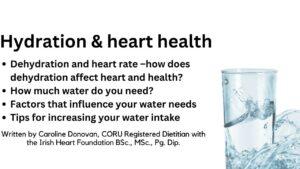
Hydration is the first step that we should do to keep a healthy heart. Water assumes a basic part in various physiological capabilities, for example, the guideline of blood volume and the upkeep of pulse. On the other hand, if dehydration occurs, the indirect reason is less fluid in the circulatory system, which increases the concentration of blood, making the muscle working less efficiently and thus there is a risk of heart malformation. Good water and food-related sugar reflect the body’s efficient metabolism and caloric turnout. Hydration in the correct way is a relatively easy lifestyle change but also a trick to having good health on your journey with strong hearts calories and overall health.
Effects of Excessive Sugar Consumption

Strong hearts calories as far as having a healthy heart is concerned, excessive sugar especially in the form of soft drinks should be strictly avoided. The critical issue here is the fact that sugar is the source of weight growing, obesity, and insulin resistance disease which is one of the risk factors for heart disease. By the same token, sugary foods and drinks will stimulate the liver to produce and release more fat into the bloodstream and this will make blood levels of fats abnormally high, which, in turn, contributes to fatty plaque build-up in arteries. Lowering the sugar content of your diet while at the same time going for whole food options like fruits has the potential of calorie control as well as heart protection. Having fewer added sugars in the diet is vital in ensuring a sound heart as well as cutting the chances of cardiovascular disorders.
Influence of Physical Activity

A major role in the health of the heart is played by having regular and steady physical activities. Exercising helps use up strong heart calories, maintain a suitable weight, as well as to improve cardiovascular fitness. Activities such as walking, running, cycling, and swimming are good for the heart muscle, and not only they are but also – they improve the blood circulation, and thus they lower the blood pressure. Exercise additional effectively remediates blood sugar levels and lessens the inflammation, both of which are significant matters for preventing heart disease. On a regular basis, the heart is to be kept strong, it has to be well-functioned in burning calories, and it brings about the overall well-being
Importance of Sleep

Adequate good sleep is an indispensable element for the regulation of the heart rhythm & the transformation of strong hearts calories. The combination of inadequate sleep and sleep deprivation can lead to weight gain, lack of appetite, and increased stress hormone levels among other already well-known risks associated with cardiovascular health. Sleep deprivation is strongly related to causing hypertension, diabetes, and heart diseases. It is also vital to get 7-9 hours of sleep every night that is of excellent quality because it perpetuates the health of your heart, regulates your appetite, and in this way it will bring about a balanced caloric intake. Focusing on getting enough sleep is a crucial way to fight off heart diseases and to stay healthy in general.
Feed your heart with good calories.
Your heart happens to be a muscle and works day and night for you to be alive. The point is, not all fuels are created equal. While some calories, like food, clog your arteries and lead to eventual problems, others support heart health. It is very important to be able to choose nutrient-rich foods such as fruits, vegetables, whole grains, and lean proteins. All these foods give your heart the muscle mass it needs to pump well and strong, especially in 2024, where heart health is more important than ever. So, take charge and fuel your heart with the right calories.
Nutrient-Dense Foods for Heart Health
Avoid processed foods with high sugar and fat.
Be active to burn calories well.
Healthy Habits for a Strong Heart in 2024
There is a need for novel every-day habits to have a healthy heart. These habits include good and proper nutrition, exercise, and hydrating water. So long as there is a proper balance in diet and staying physically active, then it becomes possible to give an ounce of boost to the heart in 2024. It could be through jogging and filling up with an effective diet over lunch; little changes do big things. Pair these habits with appropriate calorie intake. Making smart choices today will help your heart in the long run.
Importance of Daily Physical Activity
A rich diet, healthy nutrients for heart health
Hydration to keep the blood pressure stable
Smart Counting of Calories for Heart Health
Calorie counting is not about dieting and starving. It is about the smarter choice for the proper fueling of one’s body and heart. As you select whole foods and avoid high-calorie processed items, you are literally passing the right nutrients to your heart. Be worried about the amount of calories you are taking. Don’t forget; it is quality over quantity for the heart. Start counting calories smartly during 2024 and how it will be helpful for your overall wellbeing.
Focus on quality and not quantity.
Avoid high-calorie, low-nutrient foods.
Healthy eating means consuming a well-balanced diet rich in heart-friendly components.

